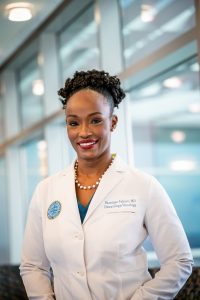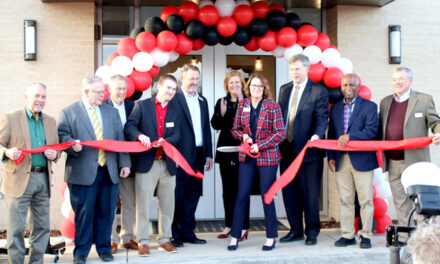“You have cancer.”
These are three words that we all dread hearing. If you are a Black person, you are more likely to hear these words and are often less likely to survive the disease than people of other racial or ethnic backgrounds.
To put this into perspective – consider that Black Marylanders are seven percent more likely to develop colorectal cancer and 29 percent more likely to die than White Marylanders. We also see this increased incidence and risk of death among Black patients with prostate cancer. Also in Maryland, Black women with breast cancer are more likely to die from the disease compared with White women.
There are several reasons for these troubling disparities, including unequal access to healthcare, higher rates of uninsurance and unfortunate biases in medical treatment. These health inequities come at a high cost. In fact, one new study shows that the gap in health outcomes between 1999-2020 among Black and White Americans translated into 80 million years of potential lost life.
To tackle these challenges and save lives, we must engage in open and honest conversations about cancer, raise awareness of the disease, and empower ourselves and each other to take action to reduce our risk. Importantly, we must find ways to do this in Black communities that face greater risk of death from cancer.
The legacy of unjust treatment of Black people in the US across all sectors of society, including healthcare, has left behind a deep-seated mistrust of the medical establishment. This is a significant hurdle that we need to work together to overcome, as we try to narrow the racial disparities in cancer outcomes.
Research has shown that when Black patients receive care from physicians who share their racial and cultural background, they often feel more at ease, communicate more openly and experience better health outcomes.
As a female physician of color, I am proud that 25 percent of my physician colleagues at Kaiser Permanente identify as Black. I feel a sense of responsibility to help educate our colleagues about health inequities, as well as the fears and sensitivities of their Black patients, which may create barriers to healthcare. Every single healthcare provider at Kaiser Permanente has their patient’s best interest at heart. We encourage open communication and break down barriers to screening, diagnosis and treatment so that all our patients can lead longer, healthier lives.
Black Family Cancer Awareness Week serves as a reminder of the importance of catching cancer early through screening. Many types of cancer can be caught early through screening, such as breast, prostate, lung, colorectal and cervical cancer. These cancers can be treated more effectively when detected early, and regular screening tests are critical to improve outcomes, including improved survival rates.
Early detection is vital to our mission at Kaiser Permanente, where we are doing this effectively and in a way that is saving lives. Our integrated model of care leverages technology to send automatic screening reminders to patients when they are due for colonoscopies, mammograms and Pap smears. Also, our entire team works together to ensure that patients follow through on their screening tests. For example, if a patient who is overdue for a mammogram is being seen for a routine vision exam, the eye doctor will help the patient schedule their mammogram for a convenient time. This has led to higher cancer survival rates for our Black patients than national averages. Notably, Kaiser Permanente members who identify as Black enjoy a life expectancy that is 10 years longer than non-members, which is a result of our focus on preventive care and regular screenings.
Recently, the U.S. Preventative Services Task Force recommended breast cancer screenings every two years for all women beginning at age 40, a practice we adopted at Kaiser Permanente years ago. Our outcomes show that these timely screenings are saving lives. Kaiser Permanente’s Black patients with breast cancer have a survival rate of 91 percent—significantly higher than the national average of 81 percent.
With more than 30 percent of Marylanders identifying as Black or African American, I encourage all of us to leverage this health observance to join forces in the fight against cancer in the Black community by engaging in open and honest conversations, increasing awareness about the importance of early detection, and advocating for our health by proactively embracing healthy lifestyle choices.
Together, we can make a difference.
Dr. Shanique Palmer is the chief of hematology and oncology for Kaiser Permanente in Baltimore.
The post Breaking barriers, saving lives: Black Family Cancer Awareness Week’s call to action appeared first on AFRO American Newspapers .










